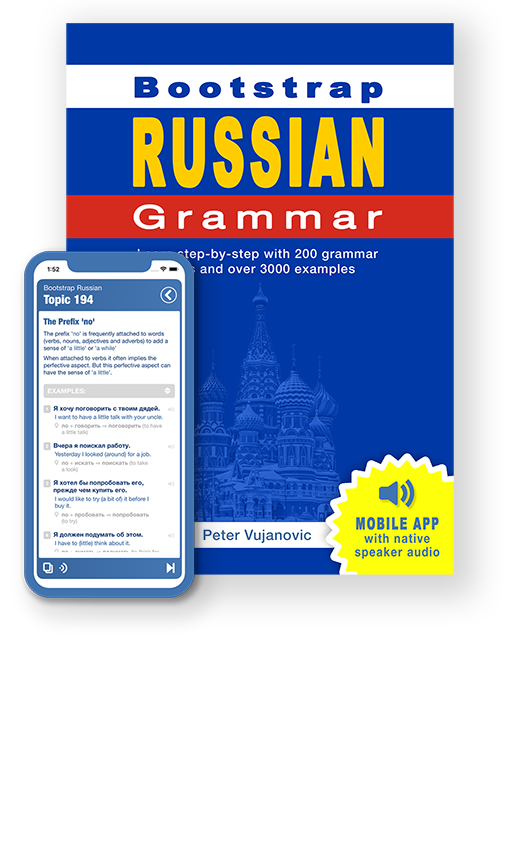Russian grammar - The multidirectional verb ходить |
|||
|
|||
Previously we introduced the verb pair идти/пойти. Recall that this pair means 'to go (by foot)'. Also recall that this verb means one-off or one-directional movement. The counterpart verb used for habitual, multi-directional or return trip movement (on foot) is ходить. The verb ходить is imperfective. Its perfective partner is also пойти. The present tense conjugation ходить is: • я хожу, ты ходишь, он/она/оно ходит, мы ходим, вы ходите, они ходят And the past tense is: • ходил, ходила, ходило ходили |
| Examples: | |
|
Каждый день я хожу на работу.
Every day I walk to work.
|
|
|
Сейчас я иду на работу.
Now I am walking to work.
|
|
|
Сегодня утром я пошёл на работу.
This morning I (male) walked to work.
|
|
|
Было холодно, когда я шёл в театр
It was cold when I (male) was walking to the theatre
|
|
|
Раньше я ходил туда на работу, а теперь я хожу сюда.
I (male) used to go to work there, but now I go here.
|
|
|
Мы ходим в магазин каждое утро.
We go to the shop every morning.
|
|
|
Они ходят на пляж по выходным.
They walk to the beach on weekends.
|
|
|
Почему ты сегодня пошла в школу пешком?
Why did you (informal) (female) walk to school today?
|
|
|
Мы пошли сюда пешком, потому что так было быстрее.
We went here by foot because it was quicker.
|
|
|
Маргарита ходила одна на фабрику.
Margarita used to walk alone to the factory.
|
|
|
Я ходил в школу десять лет.
I (male) have been going to school for ten years.
|
|
|
Вчера я шёл по улице и увидел Елену.
Yesterday I (male) was walking along the street and saw Elena.
|
|
|
Мой сын сегодня пошёл в школу.
My son went to school today.
|
|
|
Откуда вы шли?
From where were you (plural) walking?
|
|
|
Они долго ходили в парке.
They were walking in the park for a long time.
|
|
|
Мои дети ходят в школу в городе.
My children go to school in the city.
|
|
 |
|


 (imperfective, multidirectional)
(imperfective, multidirectional) 